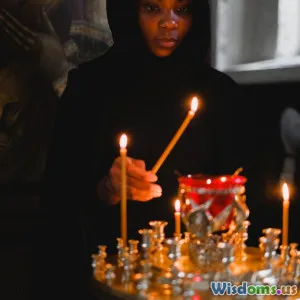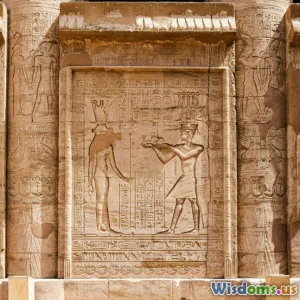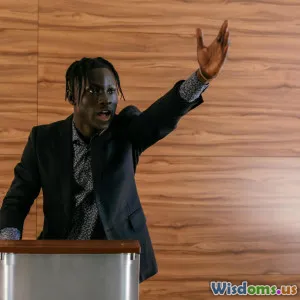
Das Geheimnis der Geheimgesellschaften verstehen
(Understanding the Mystique of Secret Societies)
6 Minute gelesen Entdecken Sie die mysteriöse Welt der Geheimgesellschaften, ihren Einfluss und die Gründe für ihre Attraktivität. (0 Bewertungen)
Understanding the Mystique of Secret Societies
Secret societies have intrigued people for centuries. They evoke a sense of mystery and curiosity, often shrouded in myths and legends. From the Freemasons to the Illuminati, these organizations have been the subject of countless conspiracy theories, novels, and films. But what lies beneath the surface of these enigmatic groups? In this article, we will delve into the history, purpose, rituals, and psychological aspects that contribute to the mystique of secret societies.
A Brief Historical Overview
Many of today’s secret societies can trace their roots to ancient civilizations. For instance, the Pythagorean Brotherhood in ancient Greece emphasized the value of knowledge and mathematics while maintaining strict secrecy about their teachings. Similarly, the Rosicrucians emerged in the early 17th century, advocating for spiritual enlightenment and esoteric knowledge.
In more recent history, the Freemasons, founded in the late 16th century, gained prominence. Their influence extended through political and social realms, often being linked to key historical events such as the American Revolution. This historical backdrop lays the foundation for understanding why secret societies persist in modern times.
Purpose and Function
Secret societies serve various purposes, often centered around shared beliefs, goals, or interests. Some common functions include:
- Fraternity and Brotherhood: Many secret societies foster a sense of belonging among members, promoting camaraderie and support. For instance, the Odd Fellows and the Knights of Columbus emphasize community and charitable works.
- Knowledge and Enlightenment: Organizations like the Rosicrucians and the Hermetic Order of the Golden Dawn focus on spiritual growth and the pursuit of esoteric knowledge, often through rituals and teachings that are kept confidential.
- Social and Political Influence: Secret societies have been known to wield considerable power in political spheres. The Skull and Bones society at Yale University is famous for its elite membership, often drawing from future leaders in politics and business.
Rituals and Symbols
One of the defining characteristics of secret societies is their use of rituals and symbols. These elements serve to create an atmosphere of exclusivity and enhance the experience of belonging. For example,
- Rituals: Many societies perform initiation ceremonies that symbolize the transition from an outsider to an insider. These rituals often involve oaths of secrecy, tests, and elaborate ceremonies that deepen the sense of commitment among members.
- Symbols: Many secret societies adopt unique symbols, such as the compass and square of the Freemasons or the owl of the Bohemian Grove. These symbols often carry deep meanings and serve to communicate the values and beliefs of the organization without revealing too much to outsiders.
The Psychological Allure
The mystique surrounding secret societies taps into deep psychological needs. Here are a few reasons why people are drawn to these organizations:
- The Need for Belonging: Humans are inherently social beings. Secret societies provide a sense of community and exclusivity that can be appealing, particularly in a world where social connections are often fleeting.
- Curiosity and Mystery: The unknown can be alluring. The secrecy surrounding these societies often piques interest and can lead to a desire to uncover hidden truths, driving people to seek membership.
- Power and Influence: Being part of a secret society can confer a sense of power and status, particularly if the group has a reputation for influencing social or political landscapes.
Contemporary Secret Societies
Today, while some secret societies have faded into obscurity, others continue to thrive in various forms. Organizations like the Freemasons still exist, adapting to modern societal changes while maintaining their core principles. Additionally, new groups have emerged, often focusing on issues like social justice, environmentalism, or political activism.
Conclusion
The mystique of secret societies is a complex interplay of history, purpose, ritual, and psychological need. They continue to captivate the imagination of people around the world, serving as a reminder of humanity’s deep-seated desire for connection, knowledge, and influence. Understanding these organizations goes beyond mere curiosity; it reflects broader themes of community, power, and the quest for meaning in an increasingly complex world. As we continue to navigate the mysteries of society, the allure of secret societies remains a compelling subject worthy of exploration.
Bewerten Sie den Beitrag
Benutzerrezensionen
Beliebte Beiträge

















